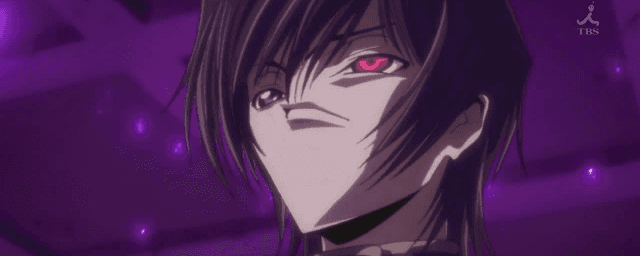Lame Geass: Lelouch of the Disappointment

Code Geass is my favourite franchise in all of media. I’ve watched it almost a dozen times over the years, and it never fails to disappoint. If you think about it, it’s the perfect series for me. It’s insanely edgy, explicitly political, utilitarian propaganda, full of incest, and it romanticises paedophi— I mean, it empowers flat-chested maidens to feel comfortable and attractive in their own bodies. Some people say the Bible is the ultimate work of art; others say it’s Atlas Shrugged. For me, it’s this weeb garbage. Over a decade later, I still look back to it for its insights in ethics, politics, the human condition, and art itself; perhaps the most pivotal work of fiction for me. So when I heard of the new theatrical releases, I had insufficient scepticism as to whether film is an appropriate format for Code Geass’ narrative.
It’s garbage.
There, I said it. I regret seeing it, but I wouldn’t say it was a complete waste of time. When an adaptation of something you love ends up sucking, this can give new insight into what made the original awesome to begin with. Since we’re talking about the same narrative, the same characters, and the same setting, the comparison can be direct and the insights clearer.
Code Geass has a sizeable hatedom to mirror its fandom, and its theatrical releases, especially Initiation, can finally lay the arguments to rest. Every negative review I’ve seen of the original series criticises it on the most retarded of grounds, and at last I have the evidence to prove all of you haters have subhuman IQ and ought to be beheaded yesterday. Do not weep, though, for the mindless retards rating it 8/10 or 9/10 deserve death no less than you do. I’d gladly side with Thanos if that meant you people would be the dead half of mankind. Peace Be Upon Him.
The story is the same as ever: the British Empire, exiled to its American colonies, reforges itself into the Holy Britannian Empire, adopts social Darwinism wholesale, and wages imperialist wars on the entire planet, stripping locals of both freedoms and national identity. Lelouche, an exiled Britannian prince with a deep hatred for his homeland, taps into the unrest in order to end this psychopathic regime. And he’s damn cool while doing so.
Taking a series that’s 10/10 by itself—a rating I do not hand out lightly—and reducing it to something subpar is a feat in itself. The root of the evil is in the format; the series is 50 episodes long and already incredibly dense, in fact the densest I’ve ever seen. In order to cram it into three films, padding is removed and content is cut, and unfortunately what’s taken out is what makes the series adorable to begin with; like an omelette without eggs; like pizza without cheese; like a Vas post without telling you to kill yourself; like pornography without preteen chil—

Let’s compare and contrast some major themes between the series and the film.
- In the series, literally ten minutes into the first episode, you hate the Britannian empire with a burning passion and can’t wait for someone to lift their head up and start fucking their shit up. In the film, you see little of the direct, personal effects the regime has on people, and thus Britannia is reduced to a generic evil empire.
- In the series, the kindness of the Kururugis towards Lelouch and Nunnally is palpable, forming the core of a lifelong bromance between Lelouch and Suzaku. In the film, it’s a minor piece of trivia with implications that aren’t explored whatsoever.
- In the series, Clovis’ death is surprising and has a major impact, both to us as an audience and the protagonist himself. In the film, we see little of Lelouche’s reactions to murdering a person, and the political ramifications are glossed over with such an extreme pace it’s difficult appreciating them. In fact, a full half of the film is devoted to the political ripples this sends, and it turns from one of the most interesting aspects of the series to the most boring, dragging part of the film.
- In the series, we see Lelouch casually interacting with other characters in the Ashford Academy, in what is hands down the most critically panned element of the series. In the film, almost all school-related subplots are cut, including Mao. This means we don’t see characters forming human relationships with one another that we care about, and by extension displaying their own humanity that we relate to. This turns very interesting minor characters into non-entities, and the protagonists into abstractions that float through the plot, fighting for things we don’t care about, against enemies that are caricatures.
- It is difficult to understate how much major characters are shafted. Without casual interactions, we can’t appreciate Lelouch and Suzaku rebuilding their trust, culminating in the Mao subplot; this means that the undoing of said trust isn’t a major, mind-rending plot twist, but a wat moment. Nunnally isn’t Lelouche’s reason to live, but just a moeblob. Kallen’s backstory is removed, turning her from the greatest resistance fighter, burning with loathing for the Britannian empire, to a mindless drone with a cool mech. Nina is a nerd we see once and then ignore, not a homosexual neck-deep in insecurities. Euphemia is a random noble who falls from the sky, not a source of idealism and validation for Suzaku’s life choices. Tōdō is a random cool dude, not a genius general who won against all odds.
- Even the things that do make it in the film aren’t given enough room to breathe. The padding between scenes is cut to make it shorter, but this padding is essential so our minds can process the implications of what we’ve just seen. If anything, it’s not that padding should have been removed, but more of it should be added; the ending credits and the gaps between episodes serve as implicit padding for the series, but this can’t be done in film format.
Overall, there is a core of an interesting story, but it’s ruined by horrible pacing. Pacing is to narrative what mastering is to music; you can have a catchy motif and an excellent delivery, but if you master your track in such a way that compression artifacts and volume balance make them inaudible, or worse yet, insufferable to listen to, then I’m better off listening to Justin Bieber.
And with that I realise that nobody really watches Code Geass because of its politics or for its coolness, as many retarded snobs accuse from their “high” castles of mindless isekai garbage and even more isekai garbage. Sure, characters are still cool, and the so are the mechs, but what really makes it amazing is the friends we make along the way. The relationships, the hopes, and the anguish of the characters can’t be explored in a fight scene, but in the more casual, cute, “filler” scenes, such as in the Ashford academy or the palace. The film tells us how characters feel and what they’re fighting for. In the series, we see them, and we feel their feelings for ourselves, so we may empathise with their struggles.
Things like Nina being weird or war leaders messing around with cute Student Council antics aren’t off-putting clashes with the more serious themes of the series. They are an essential part of the story, perhaps more essential than any fighting scene or cool mech design. It is those things that make us actually give a fuck about them. It’s the juxtaposition of beautiful things—things that give meaning to life, things one must protect—with the elements of strife and chaos which threaten to destroy them, a fear and an anxiety etched deep into our reptilian brains, communicating something only true art can.
Without those, Code Geass wouldn’t be a series worth talking about. Moreover, in omitting them, the film does not only make itself unenjoyable, but ruins the final, most important message of the franchise. Without anything worth protecting, Schneizel’s machinations are pointless, and so are Nunnally’s, and so are Lelouche’s final moments. Ultimately, Code Geass isn’t a story about how the good allies beat the evil Nazis, but how humans came to look the things that birth conflict itself in the eye, and were willing to sacrifice their very humanity so that Moloch might finally know death.
Skip this one and watch the series instead.
Final verdict: 3/10